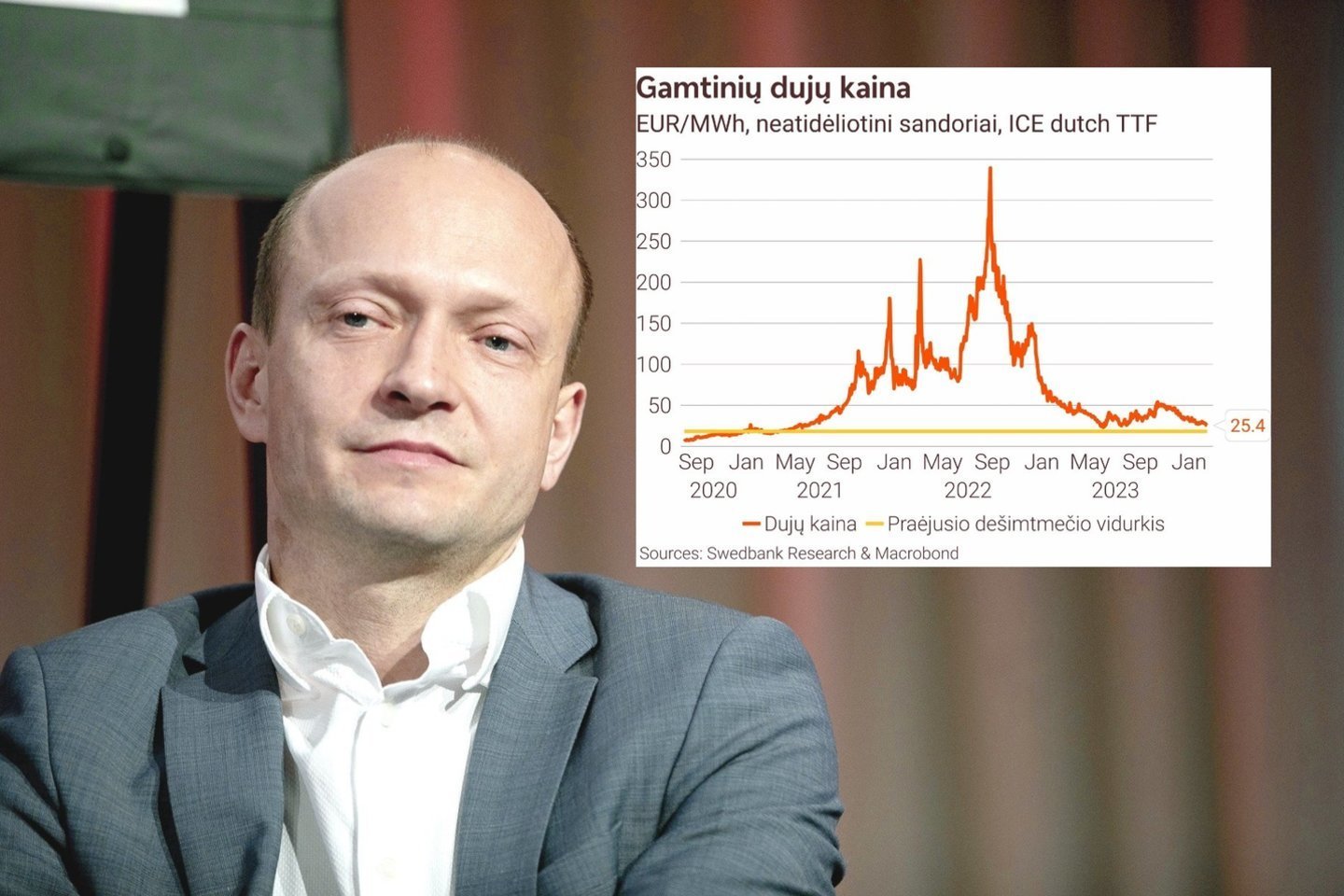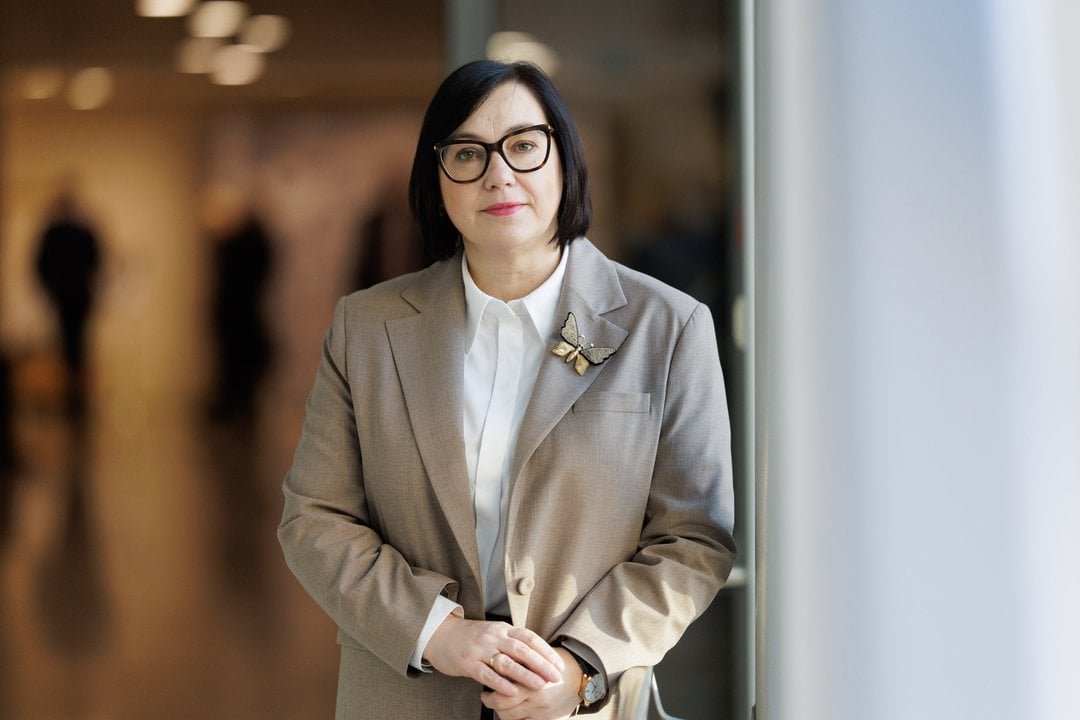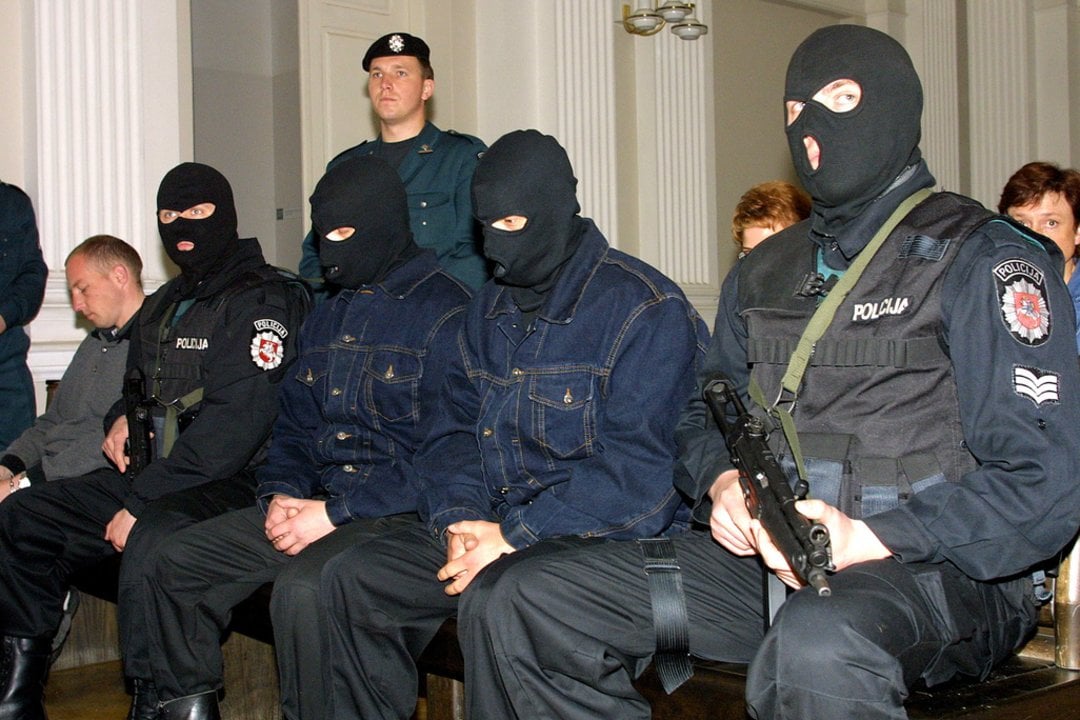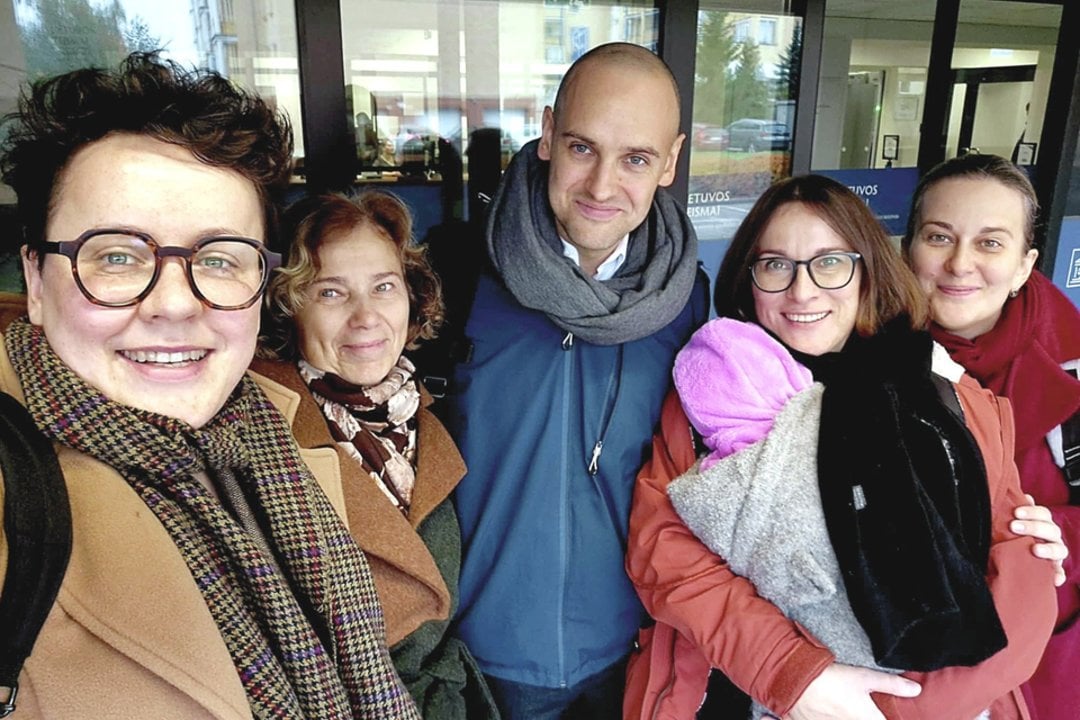"Annual inflation is likely to be close to zero in the spring, with average prices at the same level as a year ago. The trend is pleasing, but many are unhappy for a simple reason: over the past two years, prices for some goods have risen to very high levels, even well above the European Union (EU) average, so it is little consolation that they are no longer rising. For example, since autumn 2021, food products in Lithuania have become more than 40 per cent more expensive. Hence, a one per cent decrease in price is not a sufficient reason for many to celebrate," N. Mačiulis wrote on Facebook on Wednesday morning.
However, according to him, the rapidly melting inflation remnants mean at least three pieces of good news. Firstly, the current high level of consumer prices, which is somewhat detached from the trends in raw materials and energy prices, means that we may continue to see some commodities becoming cheaper this year.
"Over the last two years, steel, copper and nickel prices have fallen by around a tenth, while wheat, maize and barley prices have fallen by a quarter. Natural gas prices are no longer below €30 per MWh and are at their lowest level since the summer of 2021. Another source of the price decline is the falling prices of Chinese exports, now a tenth lower than a year ago. The deflation in commodity markets and China should eventually reach consumers' pockets," the economist explained.
Second, in the absence of price increases, average wage growth remains relatively strong. According to Swedbank's client data, average wages were 8.4% higher in January than a year earlier.
"Even after last year's BVP (GDP) stagnation, such wage growth is perhaps not surprising - since the beginning of the year, the minimum wage and the salaries of many public sector workers have increased by a tenth. As a result, the purchasing power of Lithuanians will increase by around 7% this year, outpacing the rise in prices. We are already among the first euro area countries to regain the purchasing power lost due to the price hikes. After considering price changes, real average wages are already higher than at the beginning of 2022. By comparison, real wages in Germany are at their lowest level since 2015, while French purchasing power has fallen to... "The French economy has fallen to the level of 2008," N. Mačiulis said.
The third piece of good news identified by the economist is that with inflation fading rapidly in the eurozone, the European Central Bank (ECB) will soon have no reason to keep interest rates at record highs.
"This year's Euribor futures indicate the market's expectation that the ECB will cut interest rates as early as April or June. This decision will depend mainly on how fast inflation in the eurozone falls over the next few months. However, given the trend in commodity and energy prices and the two-year decline in consumption in the eurozone, inflation will likely fall faster than the ECB forecasts.
However, waiting for a specific date X for the ECB's rate cut to hit the population is unnecessary - the markets' mere expectation that the central bank will cut interest rates shortly is already affecting the current Euribor. The six-month Euribor peaked in autumn last year at 4.1 per cent and has now fallen 20 basis points to 3.9 per cent. This downward trend is expected to continue throughout the year, with the Euribor approaching 2.5 per cent by the end of the year," he said.
However, N. Mačiulis acknowledged that disruptions in supply chains and other unpleasant surprises are possible in the context of geopolitical turmoil.
"In the last month, Houthi attacks in the Red Sea have brought the flow of cargo ships in the Sueco Canal to a near standstill. As a result, the cost of transporting a container from Shanghai to the port of Rotterdam has risen from $1500 to $4500. This is well below the peak of $15,000 reached in 2021 but could raise the prices of some goods in the short term.
So, provided that geopolitical tensions do not escalate this year, we will most likely see rapidly falling inflation in the eurozone this year, followed by falling interest rates and a recovery in the population's purchasing power", he commented.




